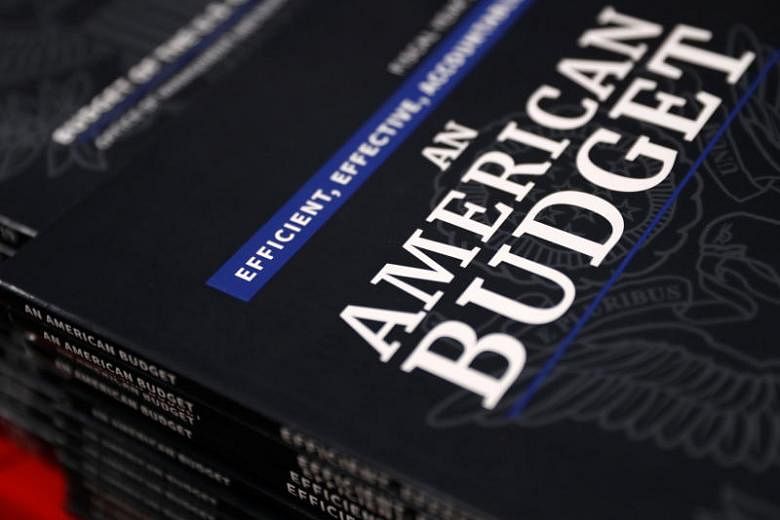WASHINGTON (REUTERS) - President Donald Trump released his second budget on Monday (Feb 12), seeking to bolster military spending and requesting funds for infrastructure, construction of a wall along the border with Mexico and opioid treatment programmes.
The US$4.4 trillion (S$5.8 trillion) budget plan, which is viewed by Congress as little more than a suggestion, will likely draw criticism from conservatives who worry that Republicans are embracing deficit spending.
The proposal for fiscal year 2019 includes US$200 billion for infrastructure spending and more than US$23 billion for border security and immigration enforcement. It also provides for US$716 billion in spending on military programmes and for maintaining the US nuclear arsenal.
In a bid to show conservatives that the administration is embracing some fiscal discipline, the plan recommends cuts in non-military spending that would lower the federal budget deficit by US$3 trillion over 10 years.
Presidential budgets are often ignored by the US Congress, which controls federal purse strings.
Trump's budget request goes to Congress only days after Trump signed off on a bipartisan spending agreement by lawmakers that will increase domestic spending by US$300 billion over two years - including US$165 billion in new defense spending and US$131 billion in non-military domestic spending.
Trump's budget also includes a number of economic forecasts and is expected to rely on estimates that the economy will keep growing at a rapid pace for the foreseeable future, which is critical to help cover the cost of the US$1.5 trillion tax-reform bill passed by Congress in December.
The budget proposal includes two key elements: US$18 billion over two years for Trump's long-promised border wall and $200 billion in federal funds to spur US$1.5 trillion infrastructure investments over the next 10 years with state, local and private partners.
The budget also seeks some US$13 billion in new funding over the next two years to combat the opioid epidemic.

